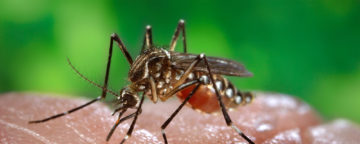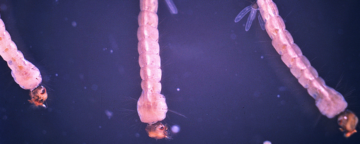Users of conservative or social media in the early days of the COVID-19 outbreak were more likely to be misinformed about how to prevent the virus and believe conspiracy theories about it.


Users of conservative or social media in the early days of the COVID-19 outbreak were more likely to be misinformed about how to prevent the virus and believe conspiracy theories about it.

People who rely on social media for information were more likely to be misinformed about vaccines than those who rely on traditional media, according to new research by the Annenberg Public Policy Center.

Social and news media have different associations with risk perceptions and preventive behavior in an emerging health threat such as Zika, according to new research.

Threatened by the mosquito-borne Zika virus in 2016, Florida residents were much more likely than non-Floridians to report taking protective measures. Even so, fewer than half of Floridians said they actually did so.

People’s willingness to use a Zika vaccine when it’s available will be influenced by how they weigh the risks associated with the disease and the vaccine, but also by their misconceptions about other vaccines, a new study has found.

How can the public’s confidence in science be strengthened? A new study finding that public confidence in science spiked following coverage of the Zika vaccine trial in 2016 suggests a way to improve trust in science on a more sustained basis.

Pope Francis’ 2015 encyclical on the environment, “Laudato Si’,” did not rally broad public support for climate change among Catholics and non-Catholics, according to a new study from researchers at the Annenberg Public Policy Center.

Most Floridians favor the use of genetically modified mosquitoes to fight the spread of Zika virus and are significantly more likely to approve of it than people who live outside Florida, the Annenberg Science Knowledge survey has found.

Floridians see themselves at greater risk of being infected with Zika compared with other people nationally, and more Floridians than non-Florida residents have takening steps to protect themselves, an APPC survey finds.